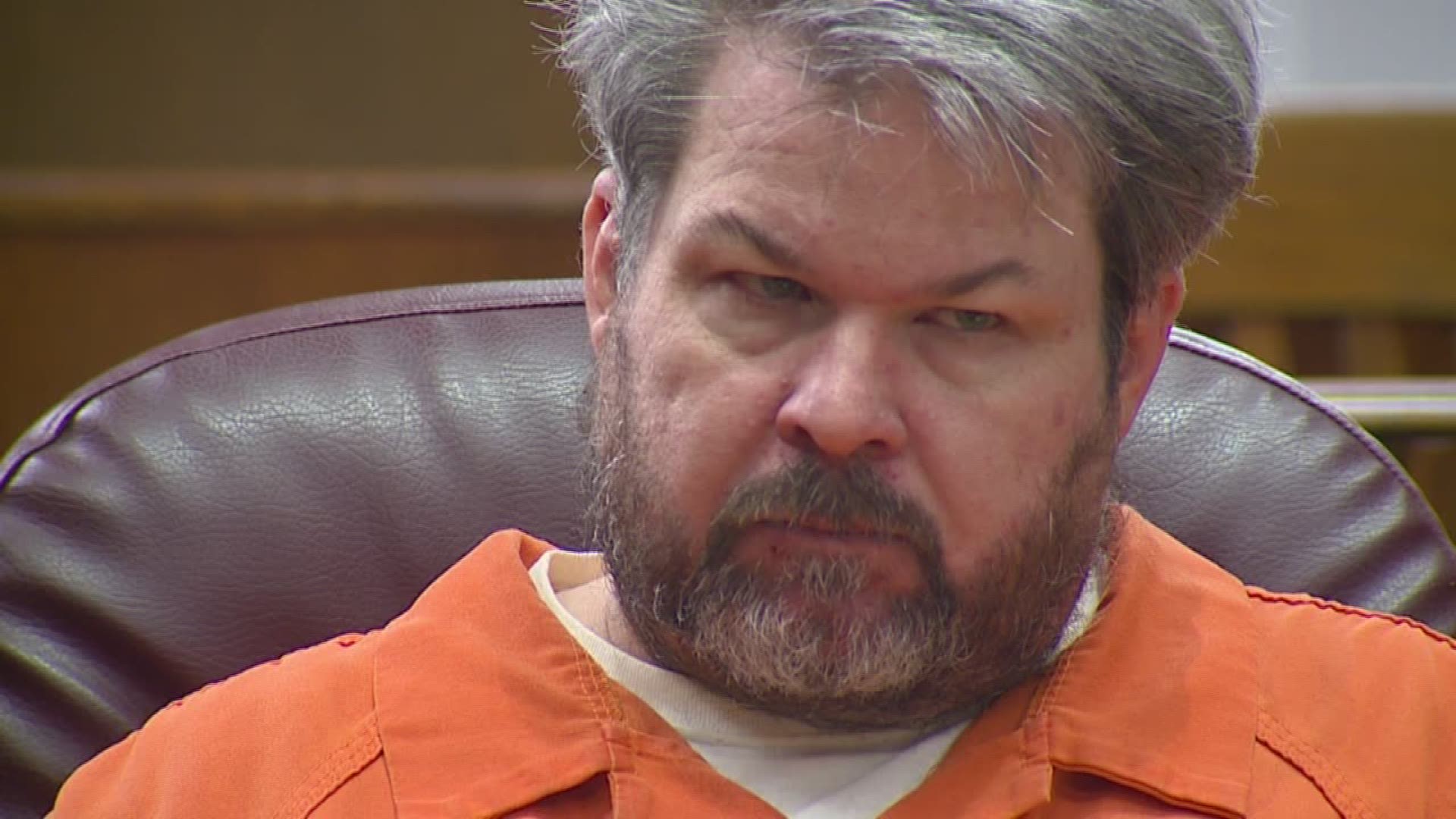Statements made by accused killer Jason Dalton following a deadly rampage that left six people dead and two injured should be fair game at his upcoming murder trial, prosecutors contend.
The statements came in two separate police interviews following his arrest for the Feb. 20, 2016 shooting spree.
Defense attorney Eusebio Solis is asking that the statements be suppressed.
A judge heard arguments from both sides Thursday and will decide in upcoming days if one or both interviews can be used at Dalton’s June murder trial.
Solis says the first interview, which lasted about three hours, should be tossed out because Dalton was not read his Miranda rights. The second interview, which lasted about four hours, took place after Dalton said he wanted an attorney, Solis said.
Kalamazoo County Prosecutor Jeff Getting said Dalton talked voluntarily with investigators and his Miranda rights were read twice during the second interview.
“These statements simply establish that he did it and confirm other aspects of that investigation,’’ Getting said after Thursday’s hearing.
What was said during the two interviews was not disclosed in court, but officials earlier revealed that Dalton claimed an Uber app on his cellphone took over his Chevy Equinox and later his body, directing the shooting spree at three locations.
Kalamazoo County Circuit Court Judge Alexander C. Lipsey, who presided over the hearing, said he will issue a ruling by April 20 on the admissibility of the statements.
Dalton, 46, was led into court by four deputies; a fifth deputy was posted at the back of the courtroom. Dalton showed no emotion and looked down throughout the hearing; there were no outbursts like what happened during a district court appearance in May, 2016.
His legal team plans to use an insanity defense. Jury selection is set for June 5; the trial is scheduled to begin June 13. The prosecution says it has about 30 witnesses for the trial, which is expected to last at least two weeks.
In the motion for suppression, Solis said Dalton’s Fifth and Six Amendment rights were violated during the two interviews that played out within hours of Dalton’s arrest.
The first interview was with Kalamazoo Department of Public Safety Detective Bill Moorian. It took place at the police department about 1 a.m. on Feb. 21 and lasted three hours.
“Our goal was to identify all the crime scenes; try to make sure there wasn’t additional people that were injured, shot, suffering somewhere that we were not aware of,’’ he testified.
“We had actual knowledge of three shooting scenes in three different jurisdictions,’’ Moorian told the court. “There were additional calls coming in of shots fired at other locations throughout the county and in the city. We didn’t know how many suspects there were.’’
Dalton at one point said “I would prefer not to say anything,’’ but the interview continued, Moorian said.
“In general terms, Mr. Dalton stated that he couldn’t remember a lot of what was going on and didn’t know what occurred that evening,’’ Moorian said. “Based on the defendant saying he couldn’t remember, that’s the reason for the continued questioning.’’
Kalamazoo County Assistant Prosecutor Jeffrey D. Williams said the interview was proper under a “public safety’’ exemption that allows police to question a suspect without first reading their Miranda rights.
Later that day, Michigan State Police Detective Sgt. Kyle Gorham conducted a separate interview with Dalton at the Kalamazoo County Sheriff’s Department. He offered Dalton a Coca-Cola; they talked about dogs and religion before the conversation shifted to the shootings. The interview lasted about four hours.
Gorham said he read Dalton his Miranda rights. Dalton initially indicated he didn’t want to waive his Miranda rights and wanted to talk to his attorney, Gorham testified.
“I asked Mr. Dalton if he cared to speak to me any further or if he was in a hurry to go back to his cell,’’ Gorham testified. “He advised that he would talk to me. He actually said he wanted to speak with me.’’
That came after the two talked about dogs; a conversation sparked by images of a black German shepherd found on Dalton’s cellphone, Gorham told the court.
Gorham said he read Dalton his Miranda rights a second time.
“The individual started to talk to me about his employment with Uber,’’ Gorham testified. “And that sort of led right into the situation of the shootings.’’
Getting, the Kalamazoo County prosecutor, said even without the interviews, evidence against Dalton is strong enough to support convictions.
“We believe that we have a strong case regardless of the court’s decision,’’ Getting said. “We have sufficient evidence to establish the defendant’s guilt beyond a reasonable doubt.’’
►Make it easy to keep up to date with more stories like this. Download the WZZM 13 app now.
Have a news tip? Email news@wzzm13.com, visit our Facebook page or Twitter.

